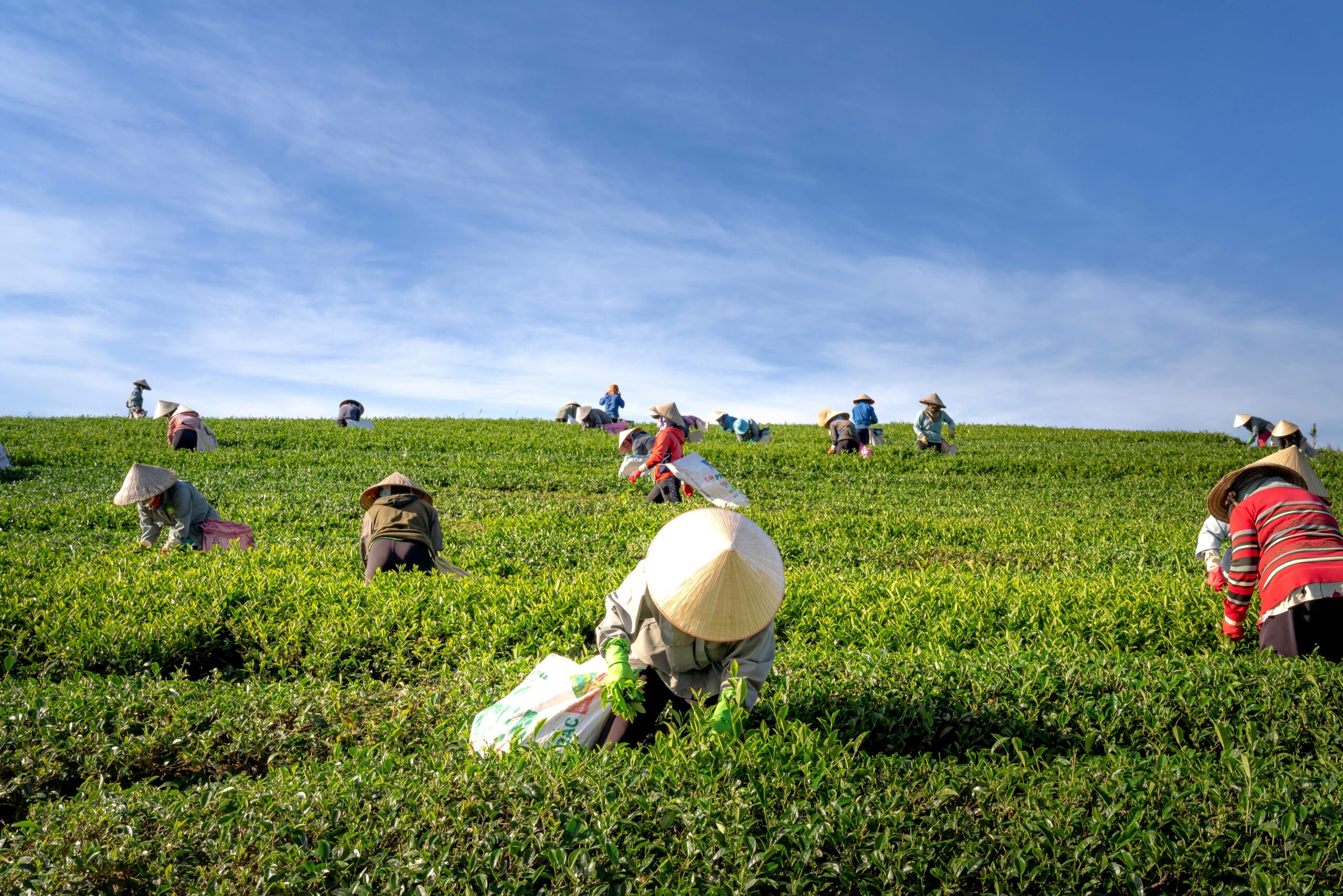Welcome to our informative blog article on the crucial topic of agricultural labor. In this piece, we aim to explore the significant role that agricultural labor plays in fostering the growth of crops and empowering local communities. Whether it’s the diligent work of farmers, the dedication of field workers, or the support of labor organizations, we will delve into the various aspects that make agricultural labor an indispensable component of the agricultural industry. Join us as we uncover the undeniable contributions and challenges faced by those involved in this vital sector.
The Importance of Agricultural Labor
When we think about the food on our tables, it’s easy to overlook the immense effort and dedication that goes into its production. Agricultural labor, however, lies at the heart of this process, fulfilling a critical role in sustaining our global food supply and supporting local economies.
One of the primary functions of agricultural labor is the cultivation and care of crops. From planting seeds and nurturing seedlings to ensuring proper irrigation and protecting plants from pests and diseases, farmers and their workforce work tirelessly to ensure a bountiful harvest.
Moreover, agricultural labor extends beyond the fields. It encompasses a wide range of tasks, including livestock care, equipment maintenance, and post-harvest activities such as sorting, packaging, and transportation. Each of these tasks requires skilled labor, expertise, and a strong work ethic.
Supporting Local Communities
In addition to its impact on food production, agricultural labor plays a significant role in supporting local communities. It provides employment opportunities, especially in rural areas where agriculture forms the backbone of the economy. By creating jobs, agricultural labor helps to alleviate poverty and reduce unemployment rates.
Furthermore, the presence of agricultural labor encourages the development of related industries and services. From agro-processing facilities to machinery repair shops, these auxiliary businesses thrive due to the need to support the agricultural workforce. This, in turn, stimulates economic growth and promotes a more sustainable and self-reliant community.
It’s worth noting that agricultural labor is not confined to large-scale commercial farming operations. Small-scale and subsistence farmers also rely heavily on their labor force to cultivate their land and provide for their families. These farmers often form the backbone of local food systems, ensuring food security and preserving traditional farming practices.
The Challenges Faced by Agricultural Labor
While agricultural labor is essential, it is not without its challenges. The men and women working in this sector often face a variety of obstacles that can affect their livelihoods and overall well-being.
Seasonal Nature of Work
One of the major challenges faced by agricultural labor is the seasonal nature of the work. Depending on the region and the crop, there are specific planting and harvesting seasons, leaving workers with periods of unemployment or underemployment. This irregular income can make it difficult for them to plan for the future, save money, or access essential services.
Physical Demands and Health Risks
Agricultural labor is physically demanding, often involving long hours of manual labor in various weather conditions. Workers may be exposed to extreme heat or cold, heavy lifting, repetitive motions, and exposure to pesticides or other chemicals. These conditions can lead to fatigue, injuries, and long-term health issues if proper safety measures are not in place.
Low Wages and Lack of Social Protection
In many parts of the world, agricultural labor is associated with low wages and a lack of social protection. Workers may not receive fair compensation for their efforts, making it challenging to break the cycle of poverty. Additionally, limited access to healthcare, education, and social security further exacerbates their vulnerability.
Limited Access to Resources and Technology
Access to resources and technology can significantly impact agricultural labor. Small-scale farmers and laborers may lack access to modern farming equipment, quality seeds, fertilizers, and other inputs that can enhance productivity and reduce labor-intensive tasks. This lack of resources can hinder their ability to improve their yields and economic conditions.
Despite these challenges, agricultural labor remains resilient, driven by the necessity to sustain our food systems. Efforts to address these issues include advocating for fair labor practices, providing training and education to enhance skills, promoting occupational health and safety measures, and supporting policies that protect workers’ rights.
Ensuring Fair and Ethical Agricultural Labor Practices
As consumers, we have a role to play in promoting fair and ethical agricultural labor practices. By making informed choices and supporting initiatives that prioritize the well-being of agricultural workers, we can contribute to a more equitable and sustainable food system.
Supporting Fair Trade and Ethical Certifications
One way to ensure fair labor practices is to look for products with fair trade or ethical certifications. These certifications verify that the farmers and workers involved in the production of the goods have been paid fair wages, enjoyed safe working conditions, and operated within environmentally sustainable frameworks.
Engaging with Local and Sustainable Agriculture
Supporting local and sustainable agriculture is another way to promote fair labor practices. By purchasing from local farmers and supporting community-supported agriculture programs, we can contribute directly to the livelihoods of agricultural workers in our own regions. Additionally, sustainable agricultural practices often prioritize the well-being of workers and the environment.
Advocating for Policy Changes
Advocacy is a powerful tool for driving change. By raising our voices and engaging with policymakers, we can advocate for better labor standards, improved working conditions, and increased support for agricultural workers. This can include advocating for fair wages, access to healthcare and education, and social protection programs.
Supporting Organizations and Initiatives
There are numerous organizations and initiatives dedicated to promoting fair and ethical agricultural labor practices. By supporting these organizations through donations or volunteering, we can contribute to their efforts in advocating for workers’ rights, providing resources and training, and fostering sustainable agricultural practices.
Ultimately, ensuring fair and ethical agricultural labor practices requires a collective effort. By staying informed, making conscious choices, and actively supporting initiatives that prioritize the well-being of agricultural workers, we can contribute to a more just and sustainable food system for all.
The Future of Agricultural Labor
The agricultural labor landscape is continuously evolving, driven by technological advancements, changing consumer preferences, and global challenges such as climate change. As we look to the future, several trends and developments are likely to shape the future of agricultural labor.
Technological Innovations
Technology is revolutionizing the agricultural sector, and this includes labor-intensive tasks. Automation, robotics, and artificial intelligence are increasingly being integrated into farming practices, reducing the reliance on manual labor. While this may lead to changes in the types of jobs available, it also presents opportunities for upskilling and adapting to new roles.
Sustainable and Regenerative Agriculture
With growing concerns about environmental sustainability, there is a growing emphasis on sustainable and regenerative agriculture practices. This includes approaches such as organic farming, agroforestry, and permaculture that prioritize soil health, biodiversity, and ecosystem resilience. These practices often require increased labor inputs, providing new opportunities for agricultural workers.
Climate Change Adaptation
Climate change poses significant challenges to agricultural systems worldwide. As farmers and workers grapple with changing weather patterns, extreme events, and shifting growing seasons, there will be a need for adaptive strategies. This may involve the adoption of climate-resilient crops, implementing water-saving techniques, and exploring alternative farming methods, all of which may influence the demand for agricultural labor.
Skills Development and Training
The evolving agricultural landscape will require a skilled workforce equipped with knowledge in areas such as technology, sustainable practices, and climate resilience. Governments, educational institutions, and organizations play a crucial role in providing access to training programs and resources that enable agricultural workers to adapt and thrive in the changing industry.
While the future of agricultural labor may bring about shifts and challenges, it also presents opportunities for innovation, sustainability, and improved livelihoods. By embracing these changes and ensuring the well-being of agricultural workers, we can build a resilient and thriving agricultural sector for the years to come.
Conclusion: Recognizing the Value of Agricultural Labor
Agricultural labor is the backbone of our food system, playing a vital role in cultivating crops, supporting local economies, and ensuring food security. The men and women who engage in this labor-intensive work deserve recognition for their contributions and the challenges they face.
From the physical demands and seasonal nature of the work to the need for fair wages, access to resources, and social protection, there are various factors that impact the well-being of agricultural workers. It is crucial for consumers, policymakers, and organizations to prioritize fair and ethical labor practices, advocating for the rights and improved conditions of agricultural workers worldwide.
As we move forward, embracing technological advancements, sustainable practices, and climate change adaptation will shape the future of agricultural labor. It is essential to support skill development, training programs, and initiatives that empower workers to thrive in the evolving industry.
By understanding the importance of agricultural labor, supporting fair trade and ethical certifications, engaging with local and sustainable agriculture, and advocating for policy changes, we can contribute to a more equitable and sustainable food system for all.
Let us continue to appreciate and value the hard work and dedication of agricultural laborers, recognizing their invaluable role in nourishing our communities and shaping the future of agriculture.
In conclusion, agricultural labor plays a crucial role in sustaining our global food supply and supporting local economies. From cultivating crops to supporting livestock care and post-harvest activities, agricultural labor is essential at every stage of the agricultural industry. It provides employment opportunities, stimulates economic growth, and contributes to the development of sustainable and self-reliant communities.
However, agricultural labor also faces challenges such as the seasonal nature of work, physical demands, low wages, and limited access to resources. It is important for us as consumers to support fair and ethical agricultural labor practices by choosing products with certifications, engaging with local and sustainable agriculture, advocating for policy changes, and supporting organizations dedicated to improving working conditions.
The future of agricultural labor will be shaped by technological innovations, sustainable practices, climate change adaptation, and the need for skills development. By embracing these changes and ensuring the well-being of agricultural workers, we can build a resilient and thriving agricultural sector for the future.
Recognizing the value of agricultural labor and supporting fair and ethical practices is not only a responsibility but also an opportunity to contribute to a more equitable and sustainable food system. Let us appreciate and value the hard work of agricultural laborers and work towards creating a better future for all involved in this vital industry.

